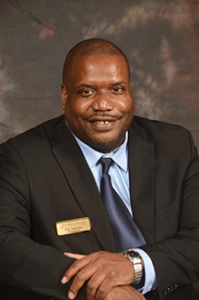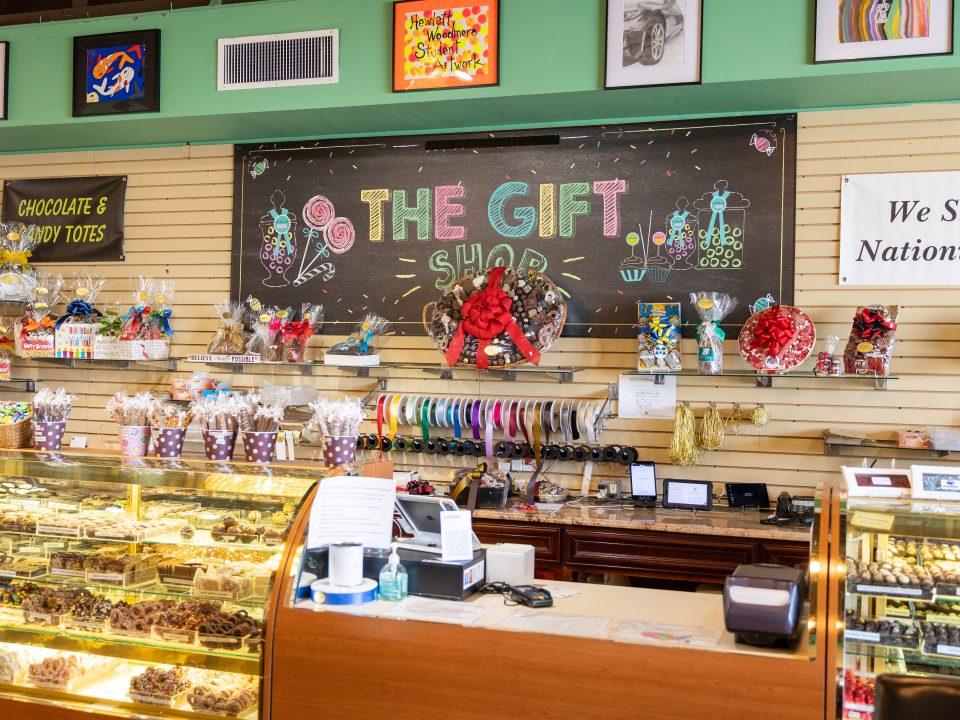Earlier this month, Trellus Same-Day Local Delivery & Marketplace joined the Long Island African American Chamber of Commerce (LIAACC). This active Chamber has gone the extra mile in welcoming us into their network. On Wednesday, February 23, Trellus CEO and Co-founder Adam Haber will be the guest speaker at the Black History Month General Membership Meeting that will also spotlight three African American businesses.
We caught up with LIAACC President Phil Andrews to find out more about the history of this Chamber, which has rapidly grown since its 2010 founding to become the largest African American Chamber in New York State.
Andrews has been a powerful voice for small businesses for many years. Prior to starting the P.A. Public Relations Company, he was the Vice President and Marketing Director of the Haircut Hut barbershop franchise for more than a decade. His business and community credentials are extensive, including most recently, his 2021 induction into the Long Island Business News (LIBN) Hall of Fame.
In this exclusive interview with Trellus, Andrews shares his thoughts about the state of African American small businesses on Long Island, reflecting on Black History Month and what it means to be a black business owner in America today.

Phil Andrews, President of the Long Island African American Chamber of Commerce
Trellus: What is the state of the African American business community on Long Island right now, emerging from the pandemic? What are the current pain points of these businesses and how does LIAACC help members?
Andrews: There was tremendous stress on small business owners during the time of the COVID pandemic, with PPP (Paycheck Protection Program) loans and EIDLs (Economic Industry Disaster Loans). LIAACC happens to be lucky. We partnered with a national bank and successfully advocated to secure a quarter of a million dollars in PPP loans. This bank will continue to partner with us.
We’re a very active Chamber of Commerce. We work with different agencies, like the Small Business Development Centers and the Entrepreneurial Assistance Program. We started a MWBE Committee (Minority and/or Women-owned Business Enterprise), and we’re going to be part of the SBA Community Navigator Grant as a Spoke, which is a testimony to the work we’ve been doing.
LIAACC also serves a marketing function because if our members had to go out there on their own, and find all these businesses to network with, it would be tremendously difficult… As you know, the network itself is very valuable. We provide members a networking pipeline of thousands of people throughout the year.
How many businesses are members of LIAACC?
We have about 400 members, which is sizable. Some chambers have been around for 100 years, and they still don’t have that many members. …We have a very strong background in the community.
Your next meeting will commemorate Black History Month, which began to honor the triumphs and struggles of African Americans throughout U.S. history. You are a business owner and a former franchisee. What does it mean to you, personally, to be a black business owner in America today?
It means there’s an unlimited amount of potential. With the advent of the social media age, we don’t have to be on major TV to get our feet in the marketplace. It also means what I call “operating in an area of excellence.” Any business that I’ve ever went into, I sought to mainstream the business. I was in the haircut business and I had targeted African Americans initially, but my model was to be the No. 1 business in haircutting. It’s true that if you give the best to the world, the world will give the best back to you, and everybody became my client. So when I do anything, I like to operate in an area of excellence.
I live my life daily making history. Every day is historic, and I try to do my best every day, knowing that I’m making history for what I do on a daily basis.
Based on your own experiences and mentoring other businesses, what advice do you have for a person of color who’s thinking about starting their own business today?
I would say that for one, they should find a mentor. There’s nothing like being able to shorten the learning curve, and I’d tell them to continuously invest in themselves. Take time to read business books, read business stories, read biographies of multimillion dollar companies… It takes a long time to turn something into an asset. You have to create value; that’s what businesses do. And businesses can sometimes be messy, too – you need a good team for support. You can’t try to do everything yourself!
I also tell business owners to “show up”. Showing up to those business events can yield results. A lot of times, 98% of your success is showing up.
What can the greater Long Island community do — or do better — to support minority-owned businesses?
I think the community should look at minority-owned businesses as an opportunity for trade. Many times, African American-owned businesses are buying equipment from a business that isn’t African American-owned. African Americans can use some of the services that we can’t find in our own community.
My model is that we work with everybody because when we only work with ourselves, then we disempower ourselves. Sometimes a smaller company needs to work with a larger business to grow their business. I think somebody out there is willing to give you a chance, no matter what your race is, if you’re providing excellent service.
That’s a great framework. Inclusivity and ‘supporting local’ is something Trellus wants to convey to our merchants and their customers.
I love the idea of Trellus! There are some people that work out of their home in our community. Hey, if I have a chance to support UPS or support a local business that can provide delivery, I’m going to support local where I have the relationship.
Our delivery drivers, too, come from the local community.
And that helps get the word out about the company because they live somewhere in these local areas. They’re not just coming from some far away place. They live in the area and work in the area where they do business. I think it’s great. It keeps people employed, and we’re circulating money in the local economy.
Are there any other resources available to minority-owned businesses that you would like to call attention to?
There are small community banks and CDFIs (Community Development Financial Institutions) that lend money and work with you way before you’re able to get a bank loan. A lot of times if a big bank doesn’t want to work with you, there are other resources.
I’m a big advocate of technical assistance, too. We ask every business that comes to the Chamber, “Have you ever had any business training?” We’re going to send you to the SBDC (Small Business Development Center). We’re going to send you to the SBA (Small Business Administration). We’re going to send you to the entrepreneurial centers…Also, look at some consultants that can help you because sometimes consultants work at a different speed than the government. I think we need to look at a combination of resources…
One of the reasons I stress the Chamber of Commerce is that local Chambers are one of the most well-known organizations across the country. Wherever you move into any town in the country, somebody will tell you to call the local Chamber of Commerce. We are that resource; we believe in business. We believe in promoting businesses and networking. So joining your local chamber is really critical, especially in our community and region.
Thank you to Phil Andrews for sharing his time and insights. Learn more about the Long Island African American Chamber of Commerce at www.liaacc.org.



